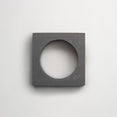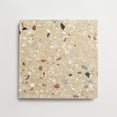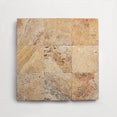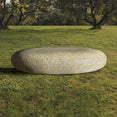While outdoor travertine tiles are elegant and versatile, they also come with some disadvantages that should be considered before choosing them for your project:
1. Porosity and maintenance
-
Travertine is a porous natural stone, which means it can absorb liquids and stains if not properly sealed.
-
Regular sealing and resealing are required to protect the tiles from damage and maintain their appearance.
2. Vulnerability to etching
-
The surface of travertine tile can be etched by acidic substances such as vinegar, citrus, or harsh cleaners, leaving dull marks or damage.
3. Susceptible to weathering
-
When used outdoors, unsealed travertine pavers can weather over time due to exposure to the elements, leading to fading, erosion, or cracks.
4. Brittle and fragile
-
Despite being durable, outdoor travertine tile is softer and more brittle than some other natural stones, like granite, and can chip or crack under heavy impact.
5. Slippery when polished
6. Affordability
7. Weight
8. Color variation
-
iIs natural color variations like ivory and Roman beige, while beautiful, can make it challenging to achieve a uniform look, particularly in large installations.
9. Susceptibility to mold and mildew
10. Environmental concerns
While travertine offers timeless beauty and natural charm, it’s important to weigh these potential drawbacks and ensure that proper care and maintenance fit within your project requirements.





































